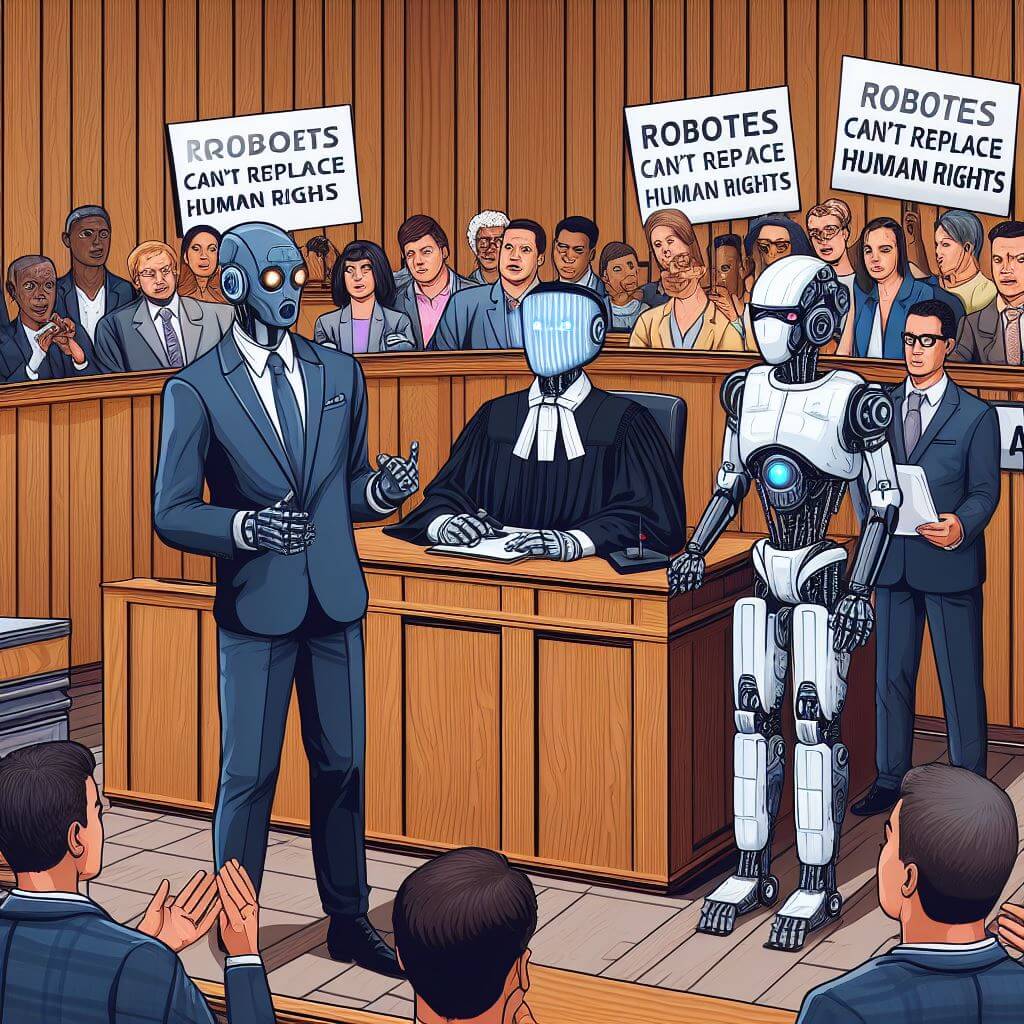Introduction
In the ever-evolving landscape of technology, a pivotal question arises: Will AI replace lawyers? The continuous evolution of artificial intelligence (AI) raises concerns and possibilities within various industries, particularly the legal sector. This comprehensive exploration delves into the potential implications of AI for the legal profession. We will examine the current state of AI in law, exploring its impact on legal research, contract review, and more. Additionally, we’ll contemplate the future of legal practice and the nuanced relationship between AI and lawyers.

The Current State of AI in the Legal Sector
AI in Legal Research
The infusion of AI in legal research signifies a transformative leap for lawyers. AI-powered tools can swiftly sift through vast legal datasets, analyze precedents, and provide insightful conclusions. This not only expedites the research process but also elevates the accuracy of legal arguments.
Contract Review and Drafting
AI technologies, armed with Natural Language Processing (NLP), excel in contract review and drafting. These tools identify potential risks, ensure compliance, and even generate drafts. This not only saves valuable time for lawyers but also reduces the likelihood of errors.
Predictive Analytics
The capability of AI to analyze data patterns allows for predictive analytics in legal cases. By assessing historical case outcomes, AI offers lawyers valuable insights into the potential trajectory of a case, facilitating strategic decision-making.
Virtual Legal Assistants
The emergence of virtual legal assistants, powered by AI, has streamlined administrative tasks for legal professionals. From scheduling appointments to managing documentation, these AI-driven assistants enhance efficiency, allowing lawyers to focus on more complex aspects of their work.

Will AI Replace Lawyers? Exploring Possibilities
The Evolution of Legal Practice
While AI is undoubtedly reshaping the operational landscape for legal professionals, the question of complete replacement remains nuanced. The more plausible scenario is a transformation in the roles and responsibilities of lawyers. Routine and repetitive tasks may indeed be automated, allowing lawyers to concentrate on higher-level tasks that require human intuition, empathy, and strategic thinking.
Ethical and Legal Implications
The integration of AI in the legal sector brings forth ethical and legal considerations. The responsibility of making decisions that carry significant consequences may remain firmly in human hands. Questions surrounding accountability, bias in algorithms, and the ethical use of AI in legal proceedings warrant careful examination.
Collaboration Between AI and Lawyers
A harmonious collaboration between AI and lawyers seems to be the future of legal practice. AI can function as a valuable tool, augmenting the capabilities of legal professionals. From enhanced research capabilities to improved efficiency in document analysis, the synergy between AI and lawyers can lead to a more effective and agile legal system.
Challenges on the Horizon
Limited Understanding of AI
One of the primary challenges in the adoption of AI in the legal sector is the limited understanding of AI technologies among legal professionals. Education and training programs will be crucial to bridge this knowledge gap and ensure that lawyers can harness the full potential of AI tools.
Ethical Dilemmas
The ethical implications of AI in legal decision-making pose a significant challenge. Addressing issues of bias, transparency, and accountability in AI algorithms is essential to uphold the integrity of the legal system.
Job Displacement Concerns
The fear of job displacement due to AI is not unique to the legal profession. However, ensuring that AI complements, rather than replaces, legal jobs will require strategic planning, retraining programs, and a forward-looking approach to the evolving nature of work.
Conclusion
In the dynamic landscape of technology, the question of whether AI will replace lawyers is complex and multifaceted. The integration of AI in the legal sector offers undeniable advantages, from streamlining tasks to providing valuable insights. However, the human touch, nuanced understanding, and ethical considerations intrinsic to the legal profession cannot be overlooked.
The future likely holds a symbiotic relationship between AI and lawyers, where technology augments human capabilities rather than replaces them entirely. As the legal sector navigates this transformative journey, adaptability, ethical considerations, and a proactive approach to embracing AI will be paramount. Will AI replace lawyers entirely? The answer seems to be a nuanced dance between innovation and the enduring expertise of legal professionals.
So, What do you think? Will AI replace lawyers? Let us know your thoughts in the comments.


Leave a Reply